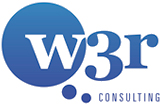4 Health Information Management Skills Employers Want Most
 The healthcare sector depends on a steady flow of accurate and complete data to function at full capacity and deliver the most ideal care outcomes. This delicate yet vital ecosystem depends on healthcare data experts to achieve best-in-class results. Many top tech professionals find working in healthcare IT to be appealing as it can increase their job stability, problem-solving skills, and overall responsibilities. But how can they secure desirable opportunities? In our experience, the best health information management jobs regularly require candidates prove their aptitude in these four technical skillsets.
The healthcare sector depends on a steady flow of accurate and complete data to function at full capacity and deliver the most ideal care outcomes. This delicate yet vital ecosystem depends on healthcare data experts to achieve best-in-class results. Many top tech professionals find working in healthcare IT to be appealing as it can increase their job stability, problem-solving skills, and overall responsibilities. But how can they secure desirable opportunities? In our experience, the best health information management jobs regularly require candidates prove their aptitude in these four technical skillsets.
Big Data Technologies
Rich with data, the healthcare industry has long depended on sophisticated platforms and software to tap into the unseen insights strewn across their databases and data lakes. From a treatment and operation standpoint, the benefits of this data are too great to overlook. The expectation for top talent is to report for duty with knowledge in a range of big data platforms and solutions, analyzing, managing, and leveraging unstructured and complex data from day one.
Most organizations have progressed beyond the introductory stages and want to hire professionals with advanced big data skillsets who can augment predictive analytics and population health management – particularly with these technologies:
- Hadoop – The complexity of healthcare data requires a database solution that can scale with demand. Most organizations recognize the value of Hadoop and its ability to process unstructured data faster through clustering. That said, it’s not surprising that healthcare IT talent can make $119,864 per year with this skill.
- MapReduce – Combined with Hadoop, MapReduce runs efficient models over large distributed sets of data. What makes it a premier tool in the healthcare space is its advanced statistical abilities and its machine learning applications. If you have MapReduce mastered, you can earn as much as $123,001, thanks to a limited workforce to supply the national demand.
- Apache Spark – As an analytics engine, Apache Spark is in common use among big data and machine learning professionals. In the healthcare space, it can be used to develop prediction algorithms that can increase the accuracy of diagnoses or even operational performance. If you can maximize the full potential of this open-source framework, you can make as much as $113,291 annually.
MuleSoft Integration
The healthcare industry depends on a patchwork of complex programs, systems, and data sources working together to deliver the greatest care outcomes. MuleSoft is the glue that holds them together. Healthcare payors want MuleSoft experts who can help with cloud migrations and improve member engagement, creating real-time communication through interactive applications and portals.
Additionally, the greater exchange of data enabled by this integration platform can impact everything from healthcare analytics to value-based care.
If you possess MuleSoft experience, the key is to prove your ability to combine complex systems. Give examples of your understanding of the technology, how it can bridge legacy and modern systems, and its advantage when enhancing analytics.
Data Ingestion Expertise
Beyond the extensive supply of data at their disposal, health organizations receive an uninterrupted flow of new information from their data pipeline. Since there is no single source or format, healthcare information management professionals need exposure to a variety of structured and unstructured formats and the judgement to ingest data into the right destination system.
What do healthcare organizations want to see in job seekers? If you can prove your ability to reduce the timeframe of data ingestion, achieve greater scalability, improve data quality, and reduce overall costs, you’ll find amazing opportunities.
Strong Data Governance
Raw, disorganized data falls short of full strategic value. Data provided from a multitude of users inside and outside of an organization is bound to have disparities in its accuracy and completeness. In fact, healthcare payors without effective data governance risk their bad data contaminating their overall reporting and even their HIPAA compliance. More organizations are realizing this threat and are seeking out healthcare IT professionals who can provide data stewardship at an enterprise level.
What do healthcare payors want to see in your work history? An ability to maintain the quality, accessibility, and security of complex data systems. Prove that you can oversee one of the key components of a data management solution and you’ll have plenty of opportunities within reach.
Do you know someone who has the skills to succeed in top healthcare information management jobs? Refer them to w3r for your chance at up to $1,200 in a referral bonus!
Related Articles
Ready to Change Jobs? 3 Reasons to Make the Switch to Healthcare IT
Why Healthcare Payor Jobs Might Be the Right Fit For Your IT Career
Want Your Dream Job? Pursue these Professional Networking Strategies

